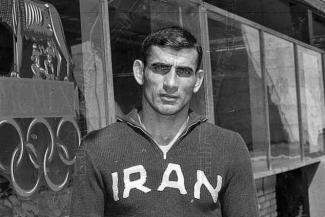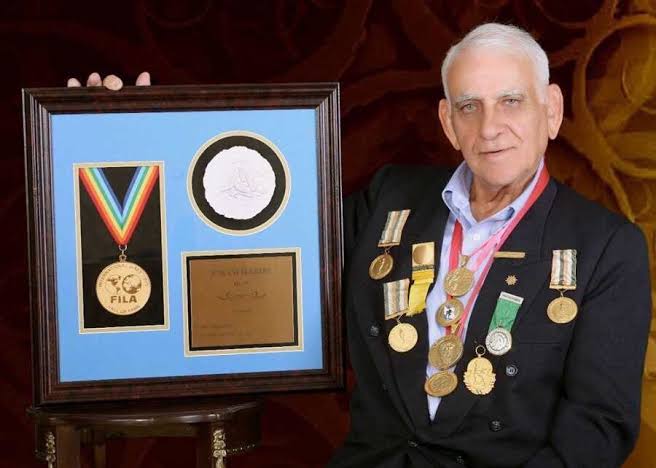Habibi, Iran's first Olympic champion, dies aged 94
Monday, August 25, 2025 - 09:42 By United World Wrestling Press

TEHRAN, Iran (August 24) -- Emamali HABIBI (IRI), Iran's first-ever Olympic gold medalist and United World Wrestling Hall of Fame member, passed away Sunday aged 94.
Habibi was born Babol in 1931 and won the first Olympic gold medal for Iran in 1956 Melbourne Olympic Games. Facing Alimbeg BESTAEV in the final round to decide the gold medalist, Habibi secured a fall in the 67kg final and etched his name in history, became first Olympic champion for Iran.
It was a rare feat in those times as he had never wrestled at an international event before the Olympics. He would make his World Championships debut in 1959, winning gold medal at 73kg. He defended his title in 1961 and added a third gold medal in 1962 at 78kg.
 Emamali HABIBI (IRI) with his World Championships gold medal.
Emamali HABIBI (IRI) with his World Championships gold medal.
He participated in the 1960 Olympic Games in Rome at 73kg and finished fourth. Habibi also has a gold medal at the 1958 Asian Games, held in Tokyo, Japan.
Habibi's legacy also includes his diverse wrestling techniques and speed on the mat which allowed him to win bouts with domination. He is widely considered one of the greatest freestyle wrestlers of his times. He was included in the UWW Hall of Fame in 2007 for his contribution to wrestling.
UWW offers its condolences to Iran Wrestling Federation and the Habibi family.


Share your thoughts.
Comments